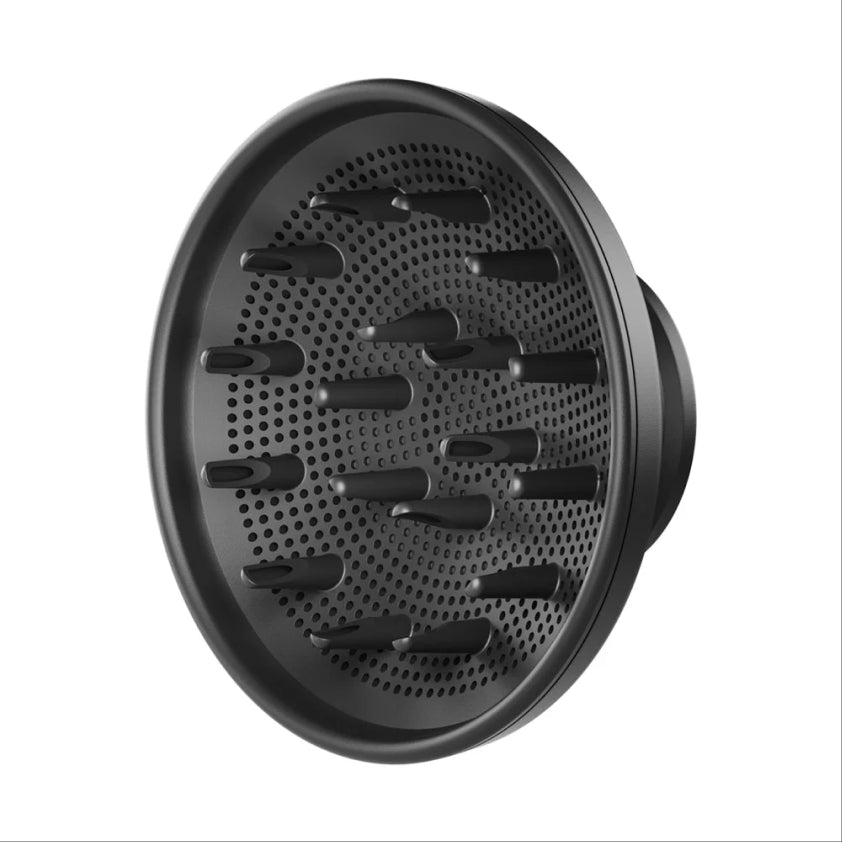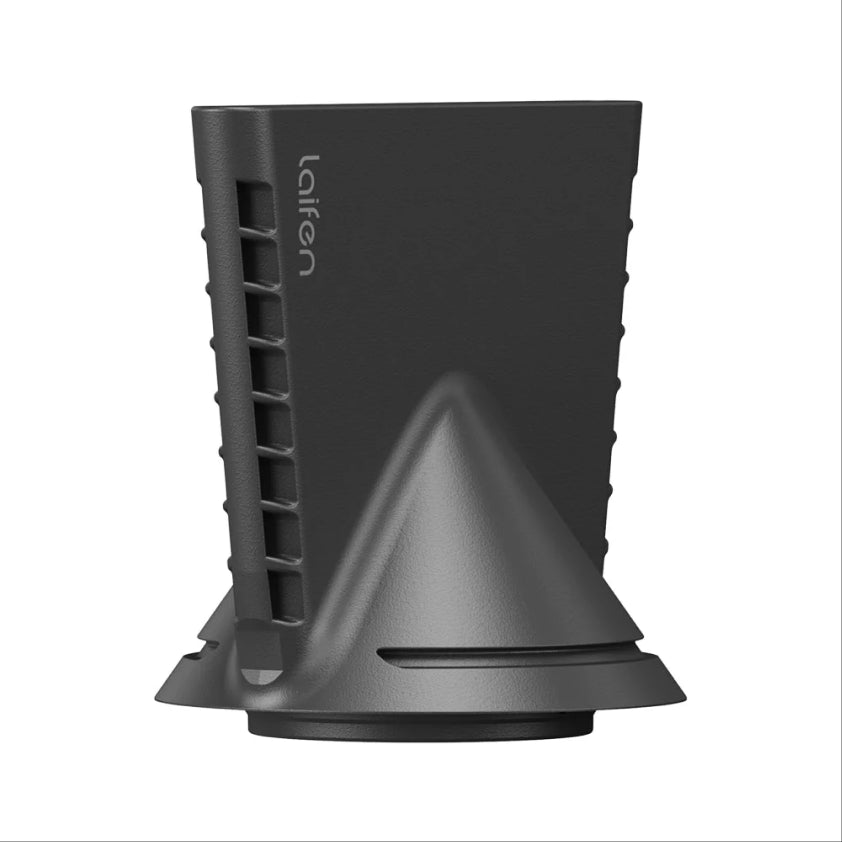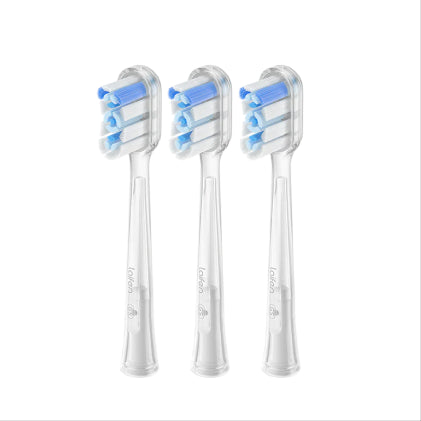
In this article
When it comes to greasy hair, there are many myths. For instance, you might have heard that washing your hair less often will help with oiliness, or you may think that greasy hair is due to poor hygiene. These assumptions are completely incorrect. In fact, hair that becomes oily quickly is often washed more frequently than hair that stays less greasy. It’s important to understand that washing your hair stimulates sebum production. A common cause of greasy hair is an improper diet. However, even washing your hair daily can stimulate sebum production, leading to quicker oil buildup. Another reason could be using the wrong hair care products. In this article, we will provide some essential tips to help prevent greasy hair.

Why Does Hair Become Oily?
If you struggle with oily hair, it’s important to understand why this happens and how oily hair is produced. It is said that the sebaceous glands on your scalp are responsible for the oiliness. Sebum, a natural oil, is secreted by these glands. It protects your scalp and hair from drying out, which sounds beneficial. However, if too much sebum is produced, your hair can appear greasy and limp. There are various reasons for excessive sebum production.
Hormonal Changes and Greasy Hair
Hormonal changes are often the cause of oily hair. This can occur during:
- Puberty
- Pregnancy
- Using birth control pills or
- Taking other medications
In addition, genetics can also play a significant role. Some people are naturally more prone to having oily hair than others. In most cases, we cannot influence these factors.
However, there are some habits we might adopt that can contribute to greasy hair. Here are a few reasons why your hair might become oily:
- Headwear: Wearing hats, caps, or other head coverings can prevent your scalp from getting enough air, which can lead to oily hair.
- Overuse of Hair Products: You may come across advice suggesting reducing hair care to combat oily hair. Indeed, improper or excessive hair care can put too much stress on your scalp and hair, which might be a contributing factor to greasy hair.
- Unhealthy Diet: A poor diet can also negatively impact sebum production.
- Dirty Hairbrushes: Make sure your hairbrush is always thoroughly cleaned. Styling products and sebum from your hair can build up in the brush, which can also lead to greasy hair.
- Touching Hair Frequently: Running your fingers through your hair often can cause your scalp to become oily more quickly.
- Heat from Straighteners and Hair Dryers: The heat from these tools can stimulate your scalp, promoting sebum production and making your hair greasy more quickly.
- Vitamin Deficiencies: Oily hair can also result from a lack of vitamins. For instance, biotin is essential for strong, healthy hair. A deficiency in vitamin D can also cause your hair to become greasy more quickly. Zinc also plays an important role in maintaining healthy hair.

What to Do About Oily Hair – What’s the Best Way to Wash Oily Hair?
When looking for tips to combat oily hair, you might often hear advice like "don't wash your hair too often." Forget that—if you feel more comfortable washing your hair more frequently, go ahead and do it. However, the products you use are crucial. It's important to understand that many products designed for oily hair can actually dry out your scalp. This can backfire, causing your scalp to produce even more oil more quickly.
When your scalp is stressed, the sebaceous glands may produce excess oil more rapidly. Volumising shampoos are also great to use as a degreasing agent. When washing your hair, make sure to rinse the shampoo thoroughly with lukewarm water. Any residue can cause your hair to become greasy faster.
If you don't have time to wash your hair, dry shampoo can be the perfect solution. It can help absorb excess oil and keep your hair looking fresh between washes.
What Helps Prevent Oily Hair – Properly Blow-Drying Your Hair
If you have an oily scalp, it's important not to expose it to unnecessary heat or hot air from a hair dryer. Heat can stimulate sebum production, leading to oilier hair. Therefore, we recommend avoiding high heat when blow-drying your hair after washing. Instead, opt for a medium heat setting and ensure the hair dryer is at least 20 centimetres away from your hair. This will benefit not only your hair but also your scalp.
We also suggest using a round brush with natural bristles—boar bristles are highly recommended. These brushes can absorb excess oil from the scalp and help distribute the oils evenly through the hair to the ends.
How to Manage Oily Hair – Additional Tips for Oily Hair:
- Dry your hair with a cotton towel. Cotton gently absorbs excess moisture from your hair.
- Avoid using a hair dryer. Instead, let your hair air-dry naturally and occasionally scrunch it to add shape.
- Shake your hair like a rock star! Not only will your hair dry faster, but you'll also feel like a rock star!

What Shampoo and Conditioner to Use for Oily Hair?
As mentioned earlier, you should always use a shampoo specifically tailored to your hair type. Volumising shampoos can be particularly helpful in combating oily hair—they’re a bit of an insider tip. When searching for tips to deal with oily hair, you’ll come across various recommendations.
If you use conditioner, it’s best to apply it only to the last 2 to 3 centimetres of your hair. You can choose a conditioner specifically designed for oily hair. Leave-in conditioners, which are applied directly to the hair after washing and don’t require rinsing, are also a good option. These are typically formulated more lightly than rinse-out conditioners. However, spray conditioners should only be applied to the ends of oily hair to avoid adding unnecessary weight to the roots.
Tips for Managing Oily Hair – The Right Way to Style
When styling oily hair, choosing the right products is crucial. It's best to use products that contain alcohol, such as hairsprays or setting sprays. Alcohol-based products help remove excess oil from the scalp and ensure that your hair doesn’t lie flat against the scalp. Under no circumstances should you use products that contain fats or oils. Avoid gel waxes, waxes, and oil-based styling creams.
How to Prevent Oily Hair Without Washing It?
There are several options for managing oily hair without washing it. Here are a few methods:
- Dry Shampoo: Dry shampoo absorbs excess oil, leaving your hair fresh and voluminous. It’s a quick solution to refresh your hair between washes.
- Talcum Powder or Baby Powder: These can be used similarly to dry shampoo. There are also special powders designed for oily hair. Simply apply a small amount to the oily areas of your hair and brush it through.
- Diet and Lifestyle: A balanced diet and adequate hydration help support scalp health and regulate sebum production.
By incorporating these tips into your routine, you can better manage oily hair and maintain a fresher look throughout the day.
Why Does Your Scalp Itch When Your Hair Is Oily?
People with oily hair often complain of an itchy scalp. Here are some reasons why your scalp might itch:
- Excess Sebum Production: When the scalp produces too much sebum, it can create an environment where the skin feels greasy and uncomfortable, leading to itching.
- Clogged Hair Follicles: Excess oil can clog hair follicles, causing irritation and itching.
- Bacterial Growth: The combination of oil and dead skin cells can create a breeding ground for bacteria, which can cause the scalp to itch.
- Skin Reactions: Sometimes, the scalp can react to the buildup of oil and products, leading to irritation and itching.
- Allergic Reactions: Some individuals may be allergic to certain hair products, which can cause the scalp to become itchy.
Using a gentle shampoo can help prevent an itchy scalp by keeping it clean without stripping away too much oil, thus maintaining a healthy balance.
Tips for Oily Hair – What Really Helps?
There are many tips out there for combating oily hair, but what really works? Anyone dealing with oily hair should focus on thoroughly cleaning the scalp. If you're looking for the best tips to manage oily hair, here are a few:
Home Remedies for Oily Hair
There are various home remedies that can help prevent hair from becoming oily. Many of these remedies involve using everyday items found in your home. Here are some effective tips for dealing with oily hair:
Dyeing Oily Hair
If you're considering dyeing your hair, you can address two issues at once. Not only can you enhance your look with the right colour, but hair dye can also help manage oily hair. Bleaching or colouring your hair can change the structure of the hair, making it more capable of absorbing excess oil. Opting for highlights or a clever colouring technique can also make your hair appear less greasy.

A Healthy and Balanced Diet
As mentioned earlier, diet plays a crucial role in managing oily hair. Healthy and beautiful hair is often the result of a balanced diet. It's recommended to choose fruits and vegetables over burgers, pizza, and fast food. In general, a diet high in greasy foods can contribute to an oily scalp.
Tips for Oily Hair: Baking Soda
If you have a scalp that tends to get oily quickly, baking soda can be a helpful remedy. It works similarly to dry shampoo by absorbing excess oil from the scalp. Apply the baking soda, let it sit briefly, and then wash it out. Flour can also serve as an emergency solution if needed.
Rinsing Hair with Apple Cider Vinegar or Lemon Juice
Using lemon juice or apple cider vinegar as a rinse after washing your hair can help improve the scalp's pH balance. This, in turn, can better regulate sebum production.
Tips for Oily Hair – Clay
You've probably heard that clay can help with oily hair. A clay treatment can support the process of reducing oiliness, particularly in cleansing the scalp. It’s known for its ability to absorb oil and impurities, leaving your hair feeling fresh and less greasy.
Tips for Combating Oily Hair – Conclusion
Many people struggle with oily hair, and the reasons for this can vary widely. Oily hair often becomes more problematic when it’s covered by a hat or scarf, as it doesn’t get enough air circulation. To prevent oily hair, always allow your hair to be exposed to air as much as possible and try to avoid excessive heat. If you need to blow-dry or straighten your hair, be sure to use heat protection. You should also avoid washing your hair with hot water; instead, use lukewarm water and a gentle shampoo that suits your hair type.
There are several different strategies for managing oily hair. Proper care is crucial, but a healthy diet also plays a significant role in maintaining a balanced scalp. If you follow our tips for combating oily hair, you should start seeing positive results soon.































